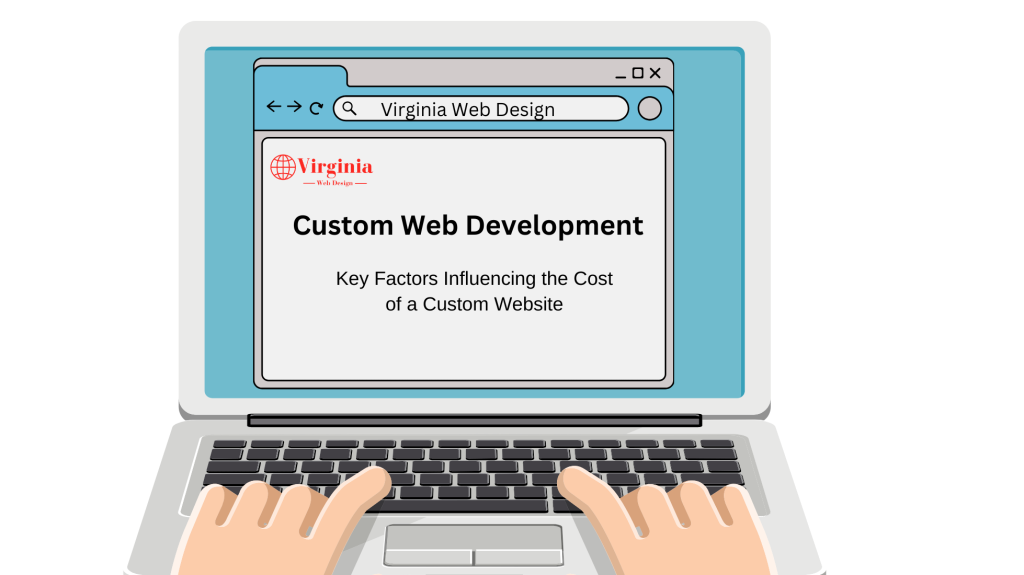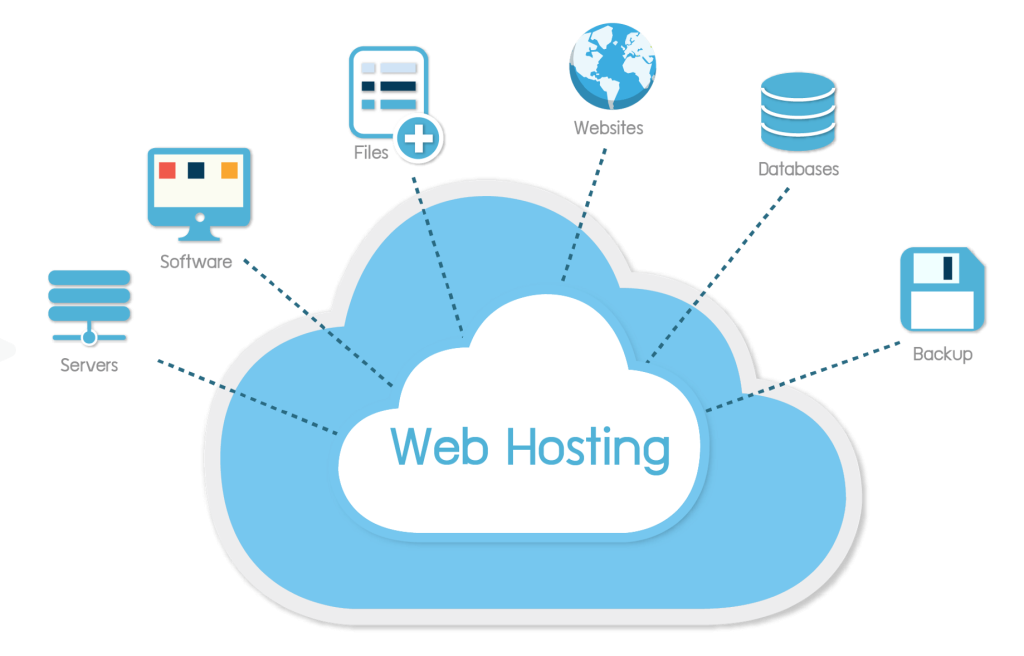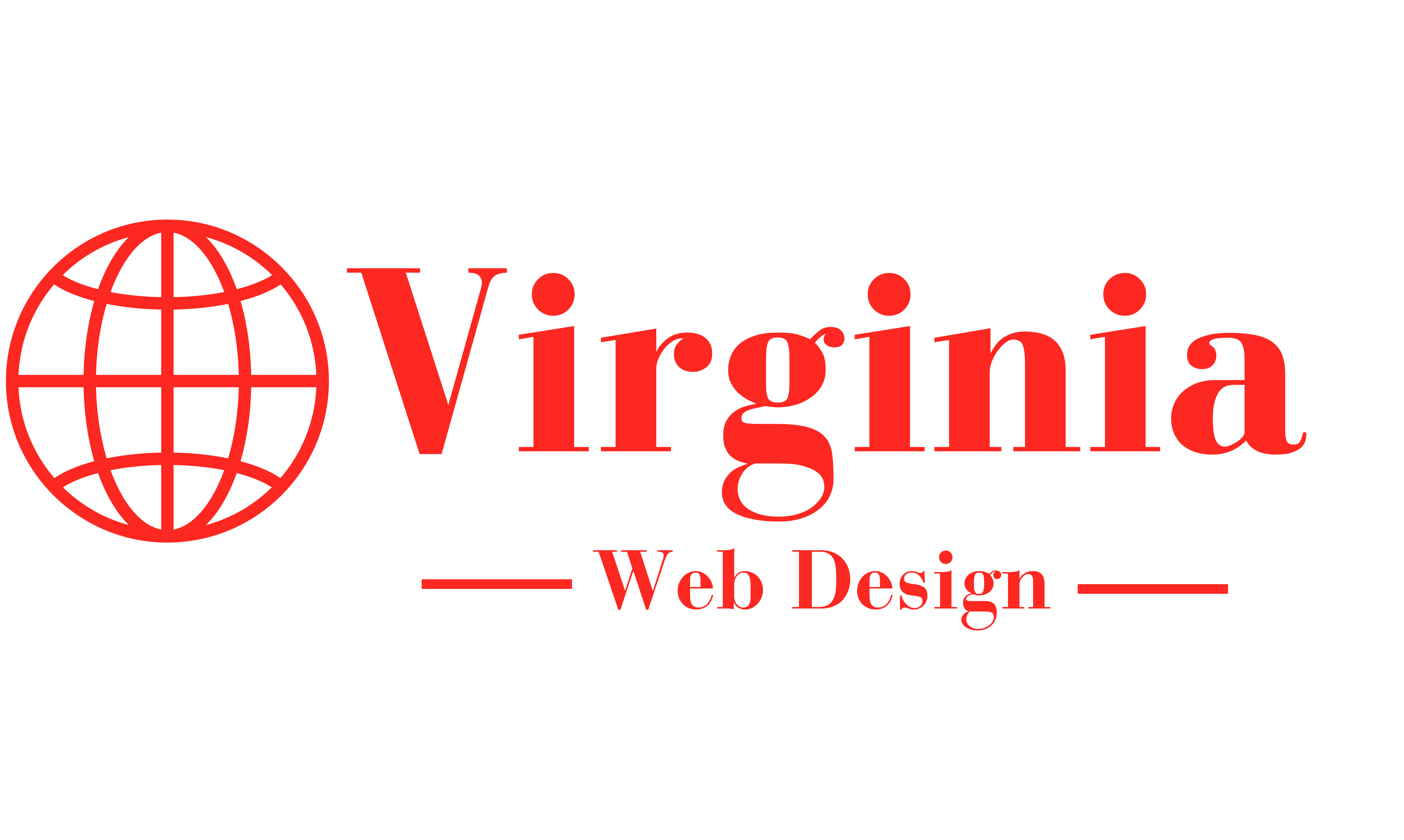
In today’s digital world, a website is often the first way an audience connects with a business. While making a custom website, it’s important to understand what things can make it cost more or less. At Virginia Web Design, we know that making a website that fits your needs and goals means balancing different things that affect how it works for people and how much it costs. In this blog post, we’ll talk about the main things that decide the cost of a custom website, like how fancy it looks and what it can do, how many pages it has, and how easy it is for search engines to find it. We’ll also talk about some extra costs that people often forget about, like getting a good website name and hosting and making sure your website is safe and has great content. So, whether you’re a small business trying to do better online or just a person with a personal project, come learn with us about website costs and make smart choices for a great online presence.
1. Type and Complexity of the Website
The type and complexity of the website you require have a significant impact on its cost. Websites can be broadly categorized into three main types.
Simple Informational Website
Simple informational websites typically consist of essential pages such as Home, Services, Contact, and Blog. They are frequently utilized by individuals, small businesses, organizations, or bloggers to share information on specific topics, promote their offerings, or establish an online presence.
For local businesses, it’s usual to include location-specific pages that not only assist customers in locating the business but also improve its online visibility. The estimated cost for creating a Simple Informational Website can range from $500 to $5,000.
E-commerce Website
When you’re dealing with an online store, what matters are the functions, how it looks, and the tools it provides for online selling.
So, which features are the most crucial for your online store to do well, and which online selling platforms can help you the most to reach your goals?
There are different platforms for e-commerce sites. The first is Shopify, known for its user-friendly setup and “plug-and-play” features. It offers visually appealing templates and many app integrations. But it is also limited by template availability and app integrations for design and functionality. However, experienced Shopify developers can help overcome limitations.
Second on the list is Magento, a divisive eCommerce platform – either loved or hated. While it has strong SEO potential, it demands expertise to utilize advanced SEO features effectively. It offers scalability, customization, and SEO-friendliness beyond Shopify or WooCommerce but comes at a higher cost, including expensive hosting for large product catalogs. Building a Magento eCommerce site often involves hiring in-house developers or outsourcing to a Magento development company.
The last one is WooCommerce, popular due to its integration with WordPress, the most popular free CMS platform. It’s a better choice for smaller-budget businesses and startups but falls short as an enterprise-level solution. Since it’s essentially a WordPress plugin, it inherits WordPress benefits like being open-source, PHP-based, and having a strong development community. However, for scalability, security, and enterprise-level credibility, it’s advisable to explore alternative solutions.
The above-mentioned are popular platforms for e-commerce. Now you understand what features in an e-commerce site are complex and affect its cost. But still, the estimated range for e-commerce might be $2,000 – $25,000+.
Custom Web Application
These are highly complex websites that often include custom features, databases, and user interactions. These applications are usually built to meet specific requirements, such as social networks or online booking systems. The design process for custom web applications can be tedious, aligning closely with the client’s preferences. Costs can span from $10,000 to hundreds of thousands of dollars.
2. Design and Branding
The design of your website plays a crucial role in attracting and retaining visitors. A well-designed website not only looks appealing but also enhances the user experience. Costs can vary depending on the level of design customization:
Pre-made Template
Using ready-made templates is budget-friendly but may lack uniqueness and customization. It may not meet the required need. Template prices typically range from $50 to $200.
Pros of website templates
- Cost-effective
- Ready to go almost immediately
- Variety to choose from
Cons of website templates
- Not made specifically for your business
- Difficult to find support
- Potential flexibility issues as your business grows and requires expansion
Custom Design
Custom designs are built to meet specific business needs. Where a professional designer creates a full website from scratch.
The process begins with you sharing your needs and goals for the website, and how it should look. You’ll let them know what it needs in terms of functionality, such as an image gallery, e-commerce section, or interactive pages.
The website designer will spend time drawing up plans for your website to meet your needs and consulting with you during the process to ensure everything is on track. The final product is something perfectly made for your business and brand, just like a custom suit or dress that would perfectly fit your body shape and style.
Pros of custom website design
- A design made specifically for your business needs
- Flexible design built with your future needs in mind for scalability
- Unique design you won’t find anywhere else
Cons of custom website design
- Requires a higher budget ( Range from $500 to $5,000 )
- Takes time to plan, design, and develop
- Requires more input from you
3. Development Technology
The choice of technology and platform for website development is another major cost factor. Some popular options include,
Content Management System (CMS)
There are various Content Management System options available i.e. WordPress, Shopify, Magento, Wix, etc. The choice of the right CMS depends on your specific needs. For instance, WordPress is often a suitable choice for most local businesses, while Shopify excels for e-commerce websites. When selecting a CMS, it’s important to consider opting for a well-known CMS. In this case, you will not have a hard time finding good developers. If you use a rare and little-known CMS, you will almost always end up with an increased development cost, sometimes increased several times. Typical costs of CMS range from $50 to $200.

Custom Development
Custom web development is necessary when a project demands unique features, scalability, brand alignment, complex data handling, security and compliance, seamless integration, optimized performance, and exceptional user experience. In such cases, off-the-shelf solutions fall short, and a customized approach becomes crucial to meet specific objectives and requirements.
4. Functionality and Features
The features and functionalities you want to include in your website significantly affect the cost. These can include,
User Registration and Accounts
A user account lets visitors create a personalized profile for tailored web content experiences, access exclusive offers, join a customer community, contact support, and receive relevant content recommendations.
E-commerce Features
Features such as product catalogs, shopping carts, payment gateways, Order Tracking, Coupon Codes, Product Availability Filters, and Chatbots.
Custom Features
The cost of a website can vary based on the specific needs and requirements for custom features. It includes Well-designed Call-To-Action or CTAs that compel potential customers one step closer to making a sale. Examples like “Buy now,” “Subscribe for more articles,” and “Explore this holiday discount” are typical CTAs. Creating dynamic, animated CTA elements involves additional effort.
A quality website search bar is vital, with 30% of users using it and 68% leaving if it’s unsatisfactory. Those who use it are almost twice as likely to make a purchase. Additional custom features can be incorporated to match your specific needs and preferences.
5. Database Management
In today’s modern world, most business planning depends on databases. Databases are used for various purposes like managing financial records, setting up customer profiles, keeping inventory and ordering information, etc. For example, if a business wants to see how a specific Product/ Service is sold, so it can be tracked from customer profiles in a database.
Establishing and configuring a database system can be a complex task, and the cost varies depending on the type of database you choose (e.g., MySQL, PostgreSQL, MongoDB). Additionally, if you need a highly scalable or specialized database, the setup and configuration can be more expensive.
6. Hosting of Website
Web hosting involves finding a computer or server for a website to reside on the internet. Various hosting options are available, with shared hosting being the first. This type is well-suited for entry-level website hosting, where your website shares server space with others. In a shared hosting plan, multiple domains utilize the same server resources, including RAM and CPU. This hosting choice is ideal for websites with low traffic.
Second on the list is Dedicated hosting, which offers website owners the most control over the server that their website is stored on. That’s because the server is exclusively rented by you and your website is the only one stored on it. This means that you have full root and admin access, so you can control everything from security to the operating system that you run. This hosting plan is relatively costly and usually for larger websites.
A VPS hosting is the ultimate middle ground between a shared server and a dedicated server. It’s ideal for website owners who need more control but don’t necessarily need a dedicated server.
The web hosting solution described earlier relies on physical hardware, software, and network infrastructure to keep your site running on a dedicated server. In contrast, cloud hosting service providers maintain your site on interconnected servers. This arrangement enables users to utilize resources as required, without the need to construct their individual computing infrastructure. These resources are distributed across multiple servers, minimizing the risk of downtime resulting from a server malfunction. Cloud hosting works best for websites that are growing rapidly.

7. Content Creation
Another underestimated expense is Quality content creation. Content Creation not only includes written materials but also images and multimedia elements. Attractive visuals and engaging written content can be costly to produce, whether you’re doing it in-house or outsourcing to professionals. In a nutshell, when deciding the budget for a website, these expenses should be considered which may cause failure to the budget.
8. SEO Optimization
You may heard that SEO optimization affects the cost of a website development but SEO is something that is done when the website is built. SEO experts focus on making strategies to boost website ranking, traffic, and conversions, navigating the complex and ever-evolving algorithm of Google. So, SEO is a continuous, ongoing planning process.
9. Security Measures
Ensuring the security of your custom website is paramount, especially if you’re handling sensitive data or user information. Implementing robust security measures can add to the overall cost of the project. Security considerations include:
SSL Certificates
SSL Certificate is not only important for website security but also for users’ trust, when they want encrypted data exchange.
Firewalls and DDoS Protection
Securing your website from cyber threats involves tools like firewalls and DDoS protection. Costs range from basic to advanced, depending on your site’s needs. These investments are crucial for data protection and online security.
Regular Security Audits
Regular security audits help organizations identify and rectify vulnerabilities, ensuring a reduced risk of security breaches. They also aid in maintaining compliance with industry regulations and addressing evolving threats proactively. Furthermore, these audits bolster customer trust by showcasing a commitment to robust security, preventing financial losses, and safeguarding reputation. Costs vary based on the frequency and depth of these audits.

Estimated Price Range
In conclusion, the cost of developing a custom website is influenced by a multitude of factors, each playing an important role in determining the final price tag. After understanding the primary factors following table shows the estimated price range for different website components,
| Components | Estimated Price Range |
| Simple Informational Website | $500 – $5,000 |
| E-commerce Website | $2,000 – $25,000+ |
| Custom Web Application | $10,000 – $100,000+ |
| Design Template | $50 – $200 (template cost) |
| Custom Design | $500 – $5,000 |
| CMS Development | $500 – $5,000 |
| Custom Development | $5,000 – $50,000+ |
| User Registration | $500 – $5,000 |
| E-commerce Features | $1,000 – $10,000+ |
| Custom Features | Varies depending on the complexity |
| Content Creation | $20 – $500+ per element |
| Hosting and Maintenance | $50 – $500+ per month |
| SEO and Marketing | $100 – $2,000+ per month |
Empower Your Business with Virginia Web Design
We, Virginia Web Design, a reputable software company in Virginia, offer comprehensive custom web development services that cover all the vital factors influencing website costs. Our skilled team of developers and designers creates websites that match businesses’ unique requirements. We make sure the website’s design and features are just right for our clients. We also offer flexible pricing, with options like hourly, daily, weekly, and monthly rates, so our services are both top-notch and budget-friendly. Get in touch with us today, and we’ll create a well-structured and business-advantageous website for your Business.
